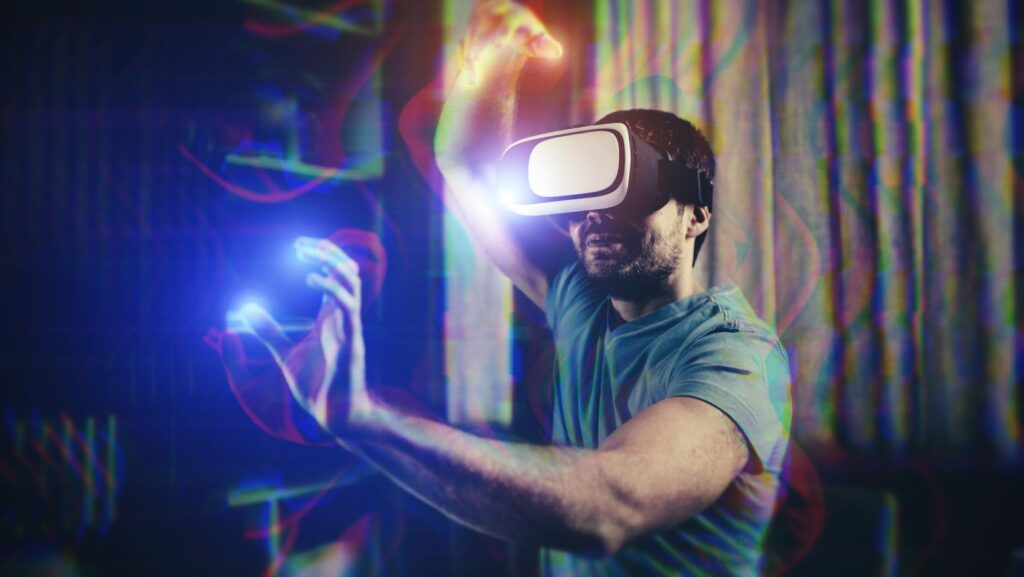Key Takeaways
- Understanding Reality+: Reality+ examines the intersection of technology and human experience in virtual worlds, raising significant philosophical questions about existence and authenticity.
- Nature of Virtual Experiences: Virtual environments blur the lines between physical and digital interactions, prompting inquiries about the value of these experiences and their ability to fulfill human social needs.
- Philosophical Dilemmas: Key philosophical questions arise regarding identity, consciousness, and the depth of virtual relationships compared to traditional face-to-face connections.
- Ethical Considerations: Consent, agency, and societal implications are critical in evaluating how immersive technologies affect individual rights and foster community dynamics.
- Existential Risks: Increased reliance on virtual realities may lead to identity erosion, addiction, and a detachment from real-life relationships, highlighting the importance of critical engagement with these technologies.
- The Role of AI: Artificial intelligence enhances virtual experiences but also raises ethical concerns about manipulation and the authenticity of connections within digital spaces.
In an age where technology blurs the lines between reality and virtual existence, the concept of “”Reality+”” gains traction. This exploration of virtual worlds challenges traditional philosophical notions about existence, perception, and truth. As people immerse themselves in digital landscapes, questions arise about what it means to live authentically and how these experiences shape human understanding.
Philosophers and technologists alike grapple with the implications of these immersive environments. Do virtual experiences hold the same weight as real-life interactions? Can a digital life offer genuine fulfillment? As society navigates this evolving landscape, understanding the philosophical dilemmas posed by virtual realities becomes crucial. This article delves into these pressing questions, inviting readers to reflect on the nature of reality in an increasingly digital world.
Reality+: Virtual Worlds and the Problems of Philosophy
 Reality+ explores the intersection of technology and human experience within virtual realms. This concept raises significant philosophical questions about existence, authenticity, and the nature of reality itself.
Reality+ explores the intersection of technology and human experience within virtual realms. This concept raises significant philosophical questions about existence, authenticity, and the nature of reality itself.
Virtual worlds, powered by advancements in augmented reality and virtual reality, blur the lines between tangible experiences and digital illusions. Individuals engage in immersive environments that mimic real-world interactions. This raises critical inquiries: Do these digital experiences possess the same value as face-to-face connections? Can one truly define authenticity in a landscape where simulations maintain increasing sophistication?
Philosophers argue that these virtual experiences can alter perceptions of identity and consciousness. They highlight the distinction between virtual and physical entities, questioning whether experiences in virtual spaces contribute meaningfully to human fulfillment. For instance, simulated interactions may create fulfilling connections, yet they differ fundamentally from those grounded in physical presence.
Furthermore, Reality+ challenges existing notions of truth and meaning. As immersive technologies expand, society’s understanding of self and connection evolves. Individuals must navigate the implications of engaging with hyper-realistic environments, contemplating how these experiences influence their understanding of ethical behavior and social responsibility.
Reality+ serves as a framework for examining the philosophical dilemmas presented by virtual worlds. It urges a deeper inquiry into how these technological advancements shape not only individual lives but also collective societal norms and values.
Key Concepts in Virtual Worlds
Virtual worlds encapsulate complex ideas about existence and interaction, reshaping perspectives on reality and society. Understanding these concepts is essential for grappling with their philosophical implications.
The Nature of Reality in Virtual Spaces
The nature of reality in virtual spaces originates from the distinction between physical and digital environments. While physical interactions rely on tangible presence, virtual worlds create simulated experiences that can mimic real life. Virtual environments facilitate real-time interactions, allowing users to engage in social activities, work, and gaming as if they were in the same room, even if separated by miles. This blend of reality and simulation raises questions about which experiences hold authentic value for individuals and whether these digital encounters fulfill human social needs.
Philosophical Questions Raised by Virtual Environments
Philosophical questions arise from the engagement with virtual environments, including issues of identity, consciousness, and existence. Users often adopt avatars, leading to debates about the nature of self and how identity is constructed in digital spaces. Does the experience in a virtual world affect one’s self-perception? Furthermore, virtual experiences prompt inquiries about consciousness. Are feelings and connections forged online as profound as those developed in physical interactions? These questions deepen the exploration of lived experiences and challenge traditional views on authenticity and fulfillment, as immersion in simulated realities reshapes emotional and social landscapes.
The Impact of Technology on Perception
Technology fundamentally alters perception, especially through virtual and augmented realities. These advancements challenge traditional views of existence and authenticity, creating a complex interplay between real and digital experiences.
The Role of Artificial Intelligence
Artificial intelligence (AI) enhances immersive environments by personalizing interactions and generating realistic simulations. AI influences how users perceive identities and relationships within virtual worlds. Algorithms analyze user behavior, tailoring experiences that resonate more deeply with individuals. This personalization can foster a sense of connection, yet it raises ethical questions about manipulation and autonomy. Philosophers debate whether these AI-driven interactions enrich human connections or obscure genuine understanding.
Immersive Experiences and Their Implications
Immersive experiences, such as virtual reality (VR) and augmented reality (AR), shift perceptions of reality and identity. These technologies offer users simulated worlds that can elicit strong emotional responses, altering their understanding of presence and engagement. The gap between digital and physical encounters narrows, prompting inquiries about the emotional depth of virtual relationships. Researchers suggest that while immersive experiences may fulfill some social needs, they may lack the richness of face-to-face interactions. The implications of this shift demand scrutiny of how individuals navigate emotional connections and societal norms in both realms.
Ethical Considerations in Virtual Realities
Ethical considerations in virtual realities play a crucial role in understanding their impact on individuals and society. The complexities of consent, agency, and broader societal implications require in-depth analysis.
Consent and Agency in Digital Landscapes
Consent and agency represent foundational concepts in the context of virtual realities. Users engage in immersive environments that often blur the lines of autonomy. These platforms frequently require users to agree to extensive terms of service, which may contain clauses that limit their rights. Understanding nuanced consent becomes vital, as many users may not fully grasp the implications of their agreements. Real-time monitoring and data collection raise additional concerns about user awareness and choice.
Moreover, avatars serve as extensions of identity in virtual landscapes. Users can exercise agency by curating their online personas; however, these choices can come with ethical implications. Questions arise about whether individuals retain control over their identities when manipulated by platform algorithms. The absence of clear ethical guidelines surrounding avatar representation can lead to misunderstandings about consent, further complicating user experiences in digital realms.
Societal Implications of Living in Virtual Worlds
 Living in virtual worlds engenders significant societal implications that warrant careful examination. These immersive environments can foster communities that bridge geographical gaps, yet they can also create echo chambers that reinforce existing biases. The potential for isolation from physical interactions increases, with researchers noting a possible decline in real-world social skills among heavy users of digital platforms.
Living in virtual worlds engenders significant societal implications that warrant careful examination. These immersive environments can foster communities that bridge geographical gaps, yet they can also create echo chambers that reinforce existing biases. The potential for isolation from physical interactions increases, with researchers noting a possible decline in real-world social skills among heavy users of digital platforms.
Additionally, as virtual economies thrive, new ethical dilemmas emerge related to equitable access and opportunity. Disparities in technology access can exacerbate social inequalities, limiting participation for certain demographics. The commodification of virtual experiences raises concerns about exploitation and fairness, demanding a reevaluation of value systems in these digital spaces.
Societal norms may also shift as individuals immerse themselves in alternate realities. Expectations for interpersonal interactions can change, impacting how relationships form and evolve. The blending of online and offline existence necessitates critical engagement with the ethics of virtual living, urging a reconsideration of values related to connection, authenticity, and fulfillment.
Reality+: philosophical Perspectives
Reality+ invites exploration of the philosophical implications of immersive virtual worlds, examining how technology influences concepts of identity, existence, and authenticity.
Simulation Theory and Its Critics
Simulation theory posits that reality may be an artificial construct, akin to a sophisticated computer simulation. Proponents, like philosopher Nick Bostrom, argue that advancements in technology such as virtual reality and AI increase the likelihood that we live in a simulation. Critics challenge this notion, questioning the empirical basis of such claims and asserting that the observable nature of reality upholds its authenticity. Some philosophers contend that relying on simulation theory can distort our understanding of genuine human experiences, as it suggests a disconnect between individuals and their lived realities. Thus, debates continue on the implications of simulation theory, including its impact on engagement with the physical world and the essence of what it means to be human.
Existential Risks Associated with Virtual Realities
Existential risks associated with virtual realities emerge as society’s reliance on digital environments grows. Philosophers highlight concerns around identity erosion, as individuals may struggle to distinguish between real and virtual selves. This phenomenon can lead to detachment from authentic relationships and eroded social skills. Additionally, the potential for addiction to immersive experiences raises alarms regarding overall well-being, as users may prioritize virtual interactions over meaningful connections in the physical world. The ethical implications of these risks prompt discussions on user agency, especially in environments where users experience manipulation from powerful algorithms. Engaging critically with these risks is essential for navigating the evolving landscape of reality+ and its impact on human fulfillment.

